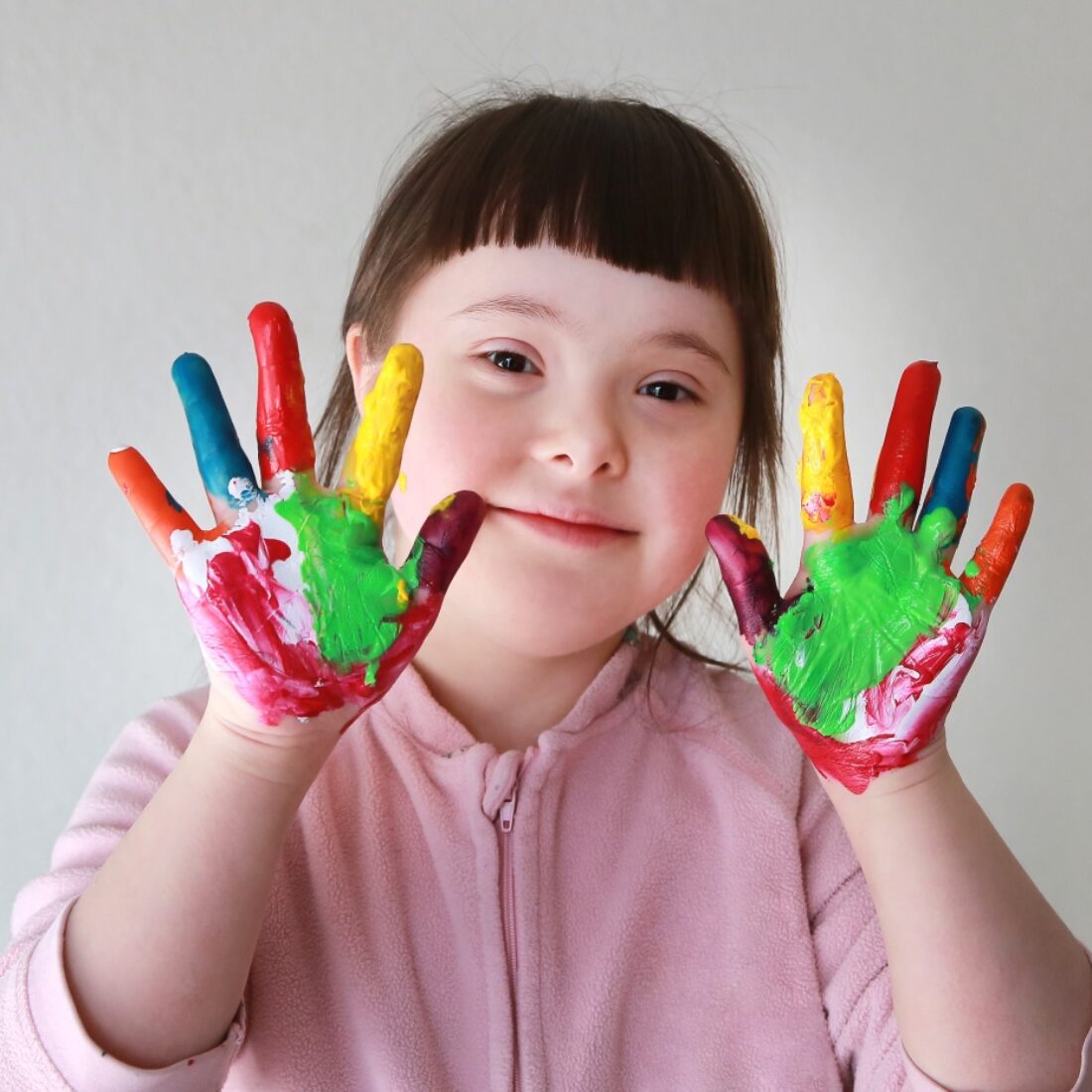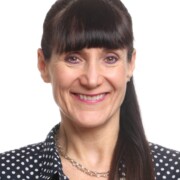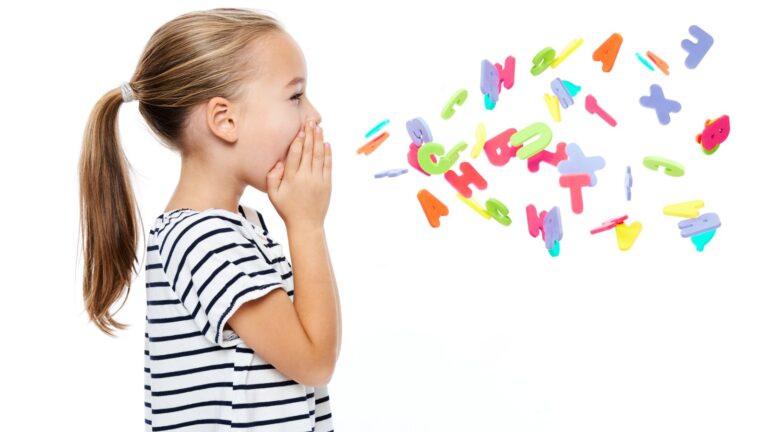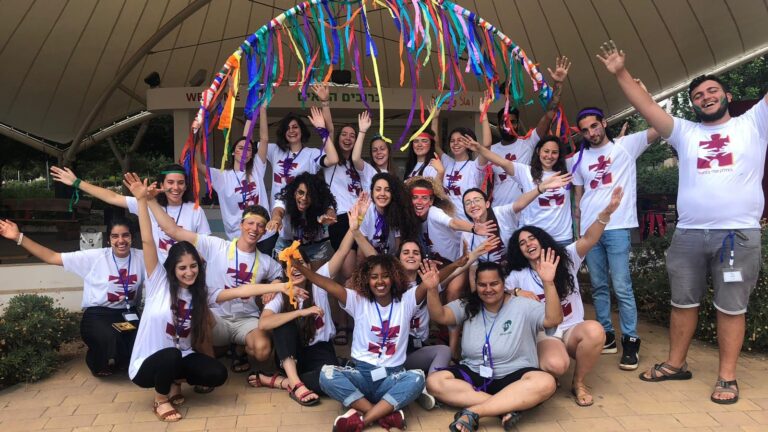“Don’t give pity to people with special needs. Give them opportunity.”
Every year in Israel, about 150 babies are born with Down syndrome.
Ahead of International Down Syndrome Awareness Day on March 21, ISRAEL21c spoke to Adi and Sharon Sagi, foster parents to two girls with Down syndrome.
For the past 15 years, the couple and their four biological children have raised awareness about Down syndrome, inspiring people to open their homes — and their hearts.
Adi recounted how, on the first night he and his family moved into their new house on Kibbutz Meirav in 2006, Sharon declared that their house was “too big” and they should take in foster children.
Sharon had worked with Down syndrome children as a National Service volunteer after high school. Even before they got married, she had mentioned to Adi that she would like to foster a Down syndrome child someday.
It didn’t take long for Adi to be persuaded, and soon they became a foster family to Michal, who was six at the time. With extensive therapies, education and support, Michal, now 23, is a soldier serving in the Equals in Uniform Project of AKIM Israel and has a boyfriend on the autism spectrum.
When Michal was nine, the Sagi family took in three-month-old Elia, now 14.
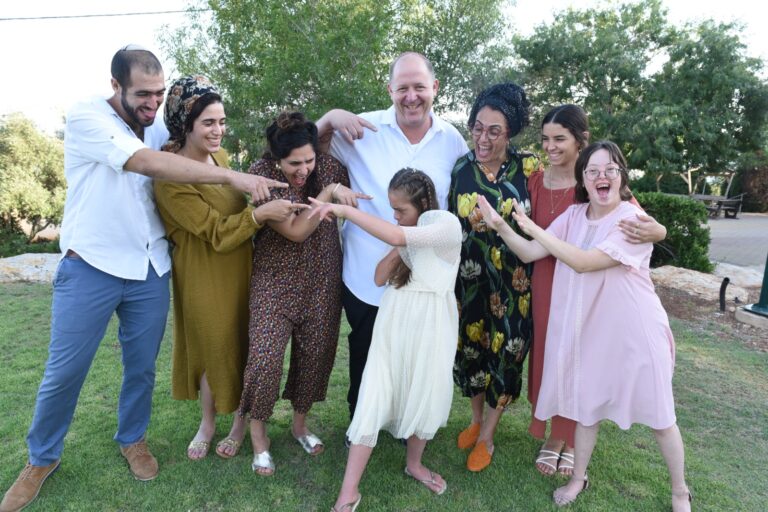
Adi said that Elia is very musical. She and Michal “sing and dance together and have their own language.”
His goal is to make society more inclusive, and less afraid of one another. “I wish for my daughters to feel loved and live in good health. This is my mission,” he says.
What is Down syndrome?
Down syndrome, named after British physician John Langdon Down, is caused by an extra chromosome — a total of 47 instead of 46 — causing cognitive and physical developmental problems.
Advanced medical care has increased the lifespan of people with Down syndrome so they now can live into their 60s. Yet Down syndrome children may suffer from a variety of serious health problems.
In the past, many Down syndrome babies in Israel were abandoned and needed foster families. That number has decreased dramatically, according to Ilil Leder, manager of Yated, the Israeli Down Syndrome Association, because of society’s growing awareness and acceptance of Down syndrome children.
An integral part of the family
The Sagis admit that caring for two children with special needs can be difficult.
Adi said he hasn’t gotten an uninterrupted night of sleep for the past 15 years because the girls wake him. And the 150 days of quarantine during Covid-19 were some of the toughest in their lives.
However, Sharon says, “From the day we took it upon ourselves to raise Michal and Elia it was clear to us that they would be our daughters for all intents and purposes, and an integral part of our family.”
At the same time, “we constantly tried to ensure that the upbringing of the special girls would not be at the expense of the other kids. We never missed an event, party, or parents’ meeting. It hasn’t been easy and it’s required from us a lot of strength.”
Houses for Life
As manager of social engagement and the Batim L’Chaim (Houses for Life) Project on Kibbutz Meirav, Adi helped found a 10-unit residence for adults with special needs, Beit Gilboa, which Sharon manages.
Following Kibbutz Meirav’s lead, 10 other kibbutzim in the area have now established the same kind of special needs facilities; there are four more residences like this under construction.
These special-needs residents are “part of the community,” Adi said. Some kibbutz members who were reluctant to be around people with special needs now volunteer to teach chess, computer, drawing and other activities.
To encourage change in society, Adi said, “you have to do and not just talk.”
In 2016, on his 47th birthday, Adi reached out to his friends to help him establish a bicycle community (“It’s not just a group; it’s a community”) with 20 cyclists in the Gilboa area who ride tandem bicycles with the disabled for three hours every week.
Michal has become an avid tandem cyclist. On March 13, she placed third in her sport in the Special Olympics held in Jerusalem.
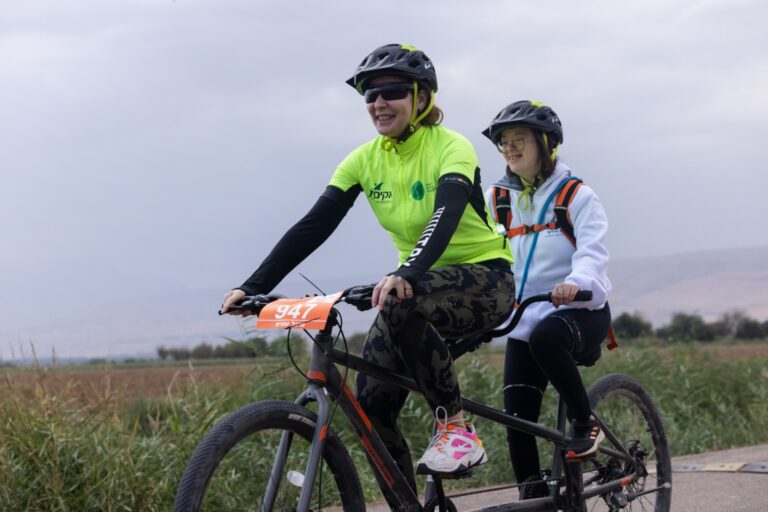
The Special Olympics Israel Committee provides training and courses along with accessible competitions for children and adults with intellectual, developmental and communication disabilities throughout the year.
She’s my sister
The Sagis’ four biological children are all active in community volunteering with people with special needs and disabilities.
“I remember my father coming to tell me that we were going to be a foster family to Michal,” says Noam Sagi, 26, the Sagis’ second-oldest biological daughter.
“I was very happy. That first day, Michal already called my father Abba [Hebrew for Daddy.] She knew what was happening. And she slept that first night in my room.”
Noam says she never felt like a “volunteer” with Michal because “she’s my sister.”
“We can’t turn people with special needs into people who don’t belong. They are part of us. We can learn tolerance and patience from them,” she says.
With about 7,000 Down syndrome people in Israel, Adi’s message on Down Syndrome Awareness Day is, “Don’t give pity to people with special needs. Give them opportunity.”
He has given more than 320 lectures around the country about volunteering, leading to dozens of new volunteers with special-needs children.
Adi also has spoken to several employers who now give jobs to people on the autistic spectrum. In addition, another family on the kibbutz adopted a child with cerebral palsy.
“You never know when you’re going to spark a change,” Adi said. “Goodness is contagious.”




